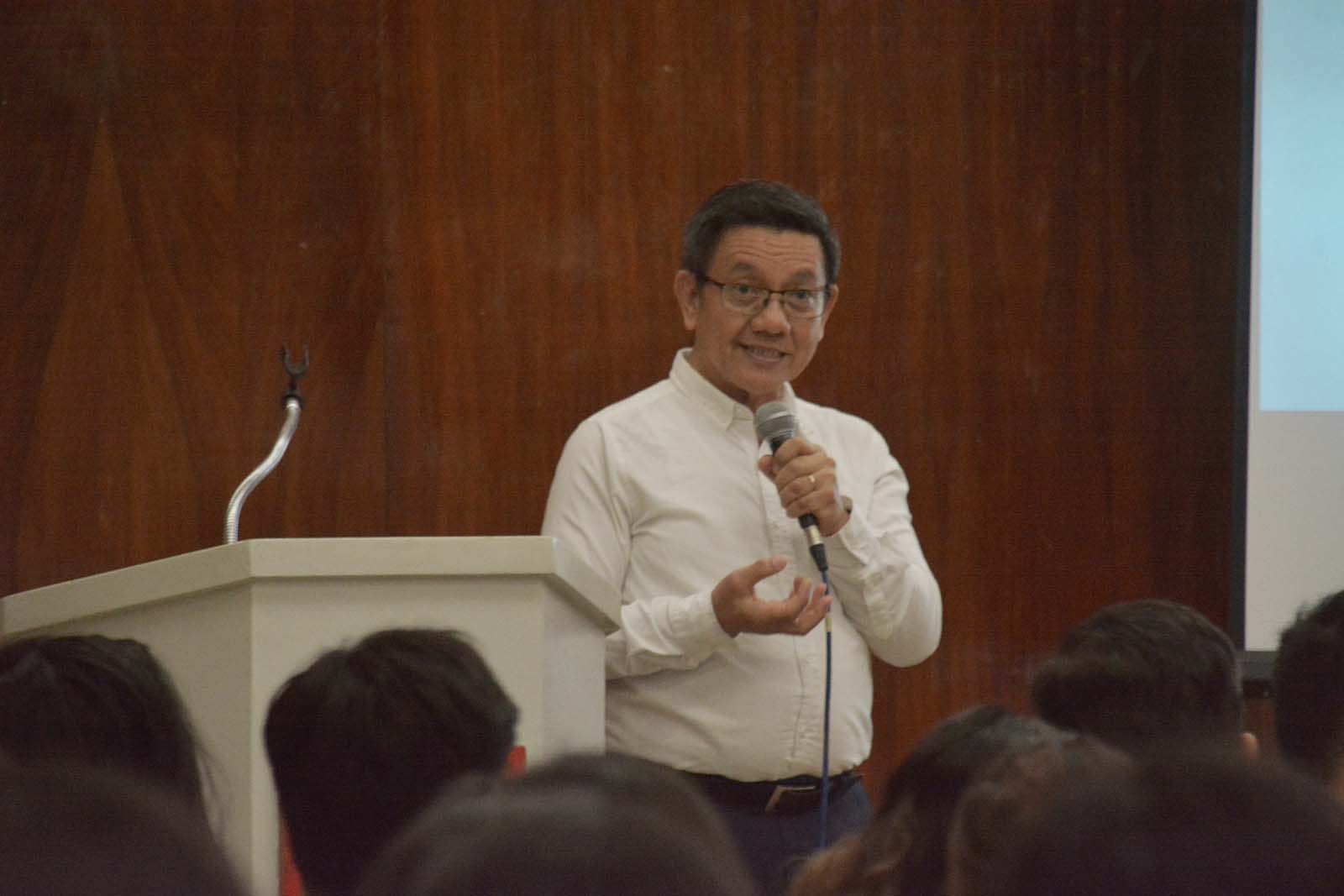
ICLS holds COVID-19 risk management forum


Dr. Franco G. Teves, biological sciences expert, talks on biorisk management in a forum organized by the Silliman University Institute of Clinical Laboratory Sciences, February 28 at the Multi-purpose room.
Determining the risk level means considering both the likelihood and consequence of hazards, said biological sciences expert Dr. Franco G. Teves during the coronavirus disease 2019 (COVID-19) biorisk management forum organized by the Silliman University Institute of Clinical Laboratory Sciences (SU ICLS), February 28, 2020 at the SU Multi-purpose room.
In the forum attended by medical technology students, Teves presented current information on COVID-19 and oriented students on basic principles of biorisk management as a tool for objective risk assessment, specifically in dealing with COVID-19.
Risk assessment of COVID-19, said Teves, involves answering the public’s most pressing questions: the probability of getting infected by COVID-19 and the severity of the infection.
“[Risk assessment] is really important because then we would know at what level are we at risk,” he said.
Likelihood or probability and consequence or severity, said Teves, are two important components of a risk.
“Risk is different from hazard. Hazard has the potential to cause something that is adverse; only a potential…risk is the likelihood of an undesirable event happening that involves a specific hazard or threat and has consequences,” Teves said.
In his lecture on biorisk management, Teves used the AMP (Assessment, Mitigation, Performance) model.
Risk assessment, said Teves, involves identifying and characterizing the hazard as the first step, which is why scientists continue to study COVID-19 as a recently discovered strain of coronavirus.
Teves said risk assessment also includes identifying the risks, in terms of who can be harmed and how, as well as identifying the consequences and estimating its severity.
As for COVID-19, Teves said the severity of infection could depend on three factors: COVID-19’s infectious dose, which he said is still unknown; a person’s immune status; and availability of vaccines for the virus.
“Unfortunately, there is still no commercially available vaccine for COVID-19,” said Teves.
Moreover, Teves said the mitigation aspect of the AMP model of biorisk management involves the best options to control the spread of infection.
In the case of COVID-19, Teves identified the following mitigation practices: rapid diagnostic procedure; separate quarantine of suspected, unconfirmed cases of COVID-19; public health surveillance; and hygiene practices.
Meanwhile, Teves said the performance aspect of the AMP model involves the publication of all plans for biorisk management to reduce the risk.
Teves, an SU alumnus who graduated in 1980 with a degree in BS Medical Technology, magna cum laude, is the Vice Chancellor for Academic Affairs and Institutional Biosafety and Biorisk Officer of Mindanao State University-Iligan Institute of Technology.
Teves is also an expert in molecular genetics, microbial biotechnology, and molecular biotechnology. He completed his MSc and PhD in microbiology from the University of the Philippines Los Baños, with sub-specialization in molecular genetics from the Universidad de Leon, Spain.


